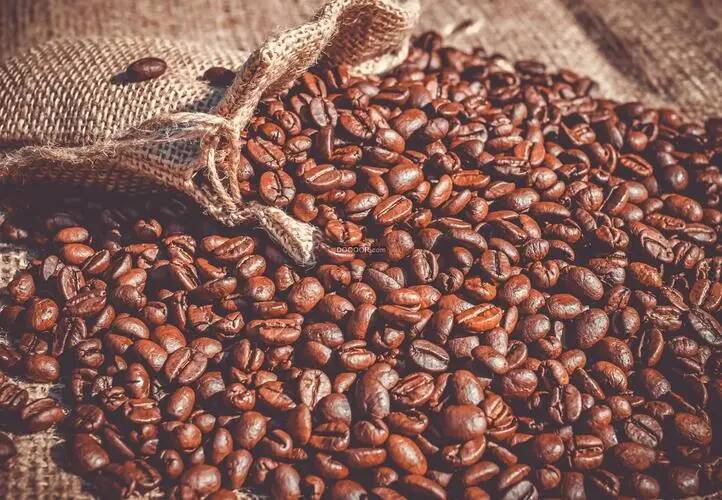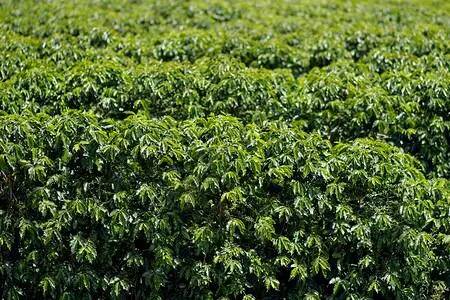Coffee prices remain high due to bad weather in some parts of Brazil
Recently, the prices of Arabica coffee and Robusta coffee continue to rise. Because Brazil updated the weather forecast, reducing the possibility of rain in coffee-growing areas in Brazil. And Brazil's currency, the real, climbed to a two-week high of 1-1 pound against the dollar, and a rise in the exchange rate would also lead to lower exports.

The price of robusta coffee is high because of tight supply and low coffee stocks. Stocks of robusta coffee monitored by ICE are near an all-time low, with stocks falling to a record low of 29310 tonnes. Arabica coffee stocks monitored by ICE also fell to a 24-year low of 224066 bags. In addition, Brazil and Vietnam, the main suppliers of Robusta, all have supply problems.
In Brazil, Brazil, like Colombia, is affected by El Ni ñ o, and dry weather in Brazil could damage coffee crops. Brazilian weather forecaster Somar Meteorologia reported that the rainfall in the Brazilian state of Minas Gerais in the past week was 40.8mm, 89 per cent of the historical average. The state of Minas Gerais accounts for about 30% of Brazil's Arabica production.

It also issued warnings of great dangers along the coasts of Sao Paulo and Rio de Janeiro, which means there is a risk of heavy rainfall, severe flooding, river overflows and mountain slides. Industry insiders say the heavy rain will affect the coffee berry harvest.
Recently, the price of robusta coffee in Vietnam has been further pushed up. The latest spot price is 73000-75000 dong / kg, which is higher than the previous price of 72000-73000 dong / kg. At present, the Vietnamese coffee market is relatively chaotic.
Some local traders said that because of tensions in the Red Sea, local farmers did not want to sell their coffee beans easily. These coffee farmers are waiting to wait until the price goes up higher before selling it. This also makes it difficult for many traders to obtain sufficient volume to fulfill the previously signed pre-sale contracts. One coffee agent, Mai Cau, went bankrupt because it had nearly $1 million in undelivered goods. And some traders say coffee farmers hold about 70% of the coffee beans produced in the new season.
The external factors are mainly concentrated in the Red Sea shipping and the drought of the Panama Canal. In the Red Sea, companies in the global shipping industry have suspended or diverted the Suez Canal since Houthi fighters in Yemen began attacking ships, according to the United Nations Conference on Trade and Development. The Suez Canal, which connects the Mediterranean Sea and the Red Sea, is an important transport link between Asia and Europe, and global shipping costs are soaring, increasing the risk of inflation. It is estimated that trade on the Suez Canal has fallen by 42% in the past two months.
In addition, the severe drought has reduced the water level of the Panama Canal to its lowest level in decades, thus limiting the number and size of ships that can pass through the canal, which is even worse for shipping companies. It is estimated that the throughput of the Panama Canal in December was 36% lower than the previous year and 62% lower than two years ago. The impact of the crisis on global transport is so significant that ships can only find alternative routes to avoid the Suez and Panama canals.
Important Notice :
前街咖啡 FrontStreet Coffee has moved to new addredd:
FrontStreet Coffee Address: 315,Donghua East Road,GuangZhou
Tel:020 38364473
- Prev

Introduction to Panama BOP Development, Wauka production area and Hartman Manor Rose Summer
In the coffee industry, coffee auction is a very important activity. Coffee auctions are usually held at the same time as regional or national coffee events, and the winning coffee can be sold directly at the auction. And coffee auction can cause people to bid for high-quality coffee at a high price, which can better improve people's awareness of the origin of coffee.
- Next

What are the ways of using coffee hoop filter cup, grinding scale and brewing method? What's the difference between the coffee and the coffee made from V60?
About half a month ago, Qianjie shared the ice pupil filter cup with the "distant relatives" ice pupil B75 filter cup, but today Qianjie would like to share with you one that has won the honor of SCA's best product of the year in 2023 since its launch. It is Hoop filter from Italian coffee equipment manufacturer Ceado.
Related
- What grade does Jamaica Blue Mountain No. 1 coffee belong to and how to drink it better? What is the highest grade of Blue Mountain coffee for coffee aristocrats?
- What are the flavor characteristics of the world-famous coffee Blue Mountain No. 1 Golden Mantelin? What are the characteristics of deep-roasted bitter coffee?
- Can I make coffee a second time in an Italian hand-brewed mocha pot? Why can't coffee be brewed several times like tea leaves?
- Hand-brewed coffee flows with a knife and a tornado. How to brew it? What is the proportion of grinding water and water temperature divided into?
- What is the difference between Indonesian Sumatra Mantinin coffee and gold Mantinin? How to distinguish between real and fake golden Mantelin coffee?
- What does bypass mean in coffee? Why can hand-brewed coffee and water make it better?
- Unexpected! Ruixing Telunsu lattes use a smoothie machine to foam milk?!
- % Arabia's first store in Henan opens into the village?! Netizen: Thought it was P's
- Does an authentic standard mocha coffee recipe use chocolate sauce or powder? Mocha Latte/Dirty Coffee/Salty Mocha Coffee Recipe Share!
- What is the difference between Vietnam egg coffee and Norway egg coffee? Hand-brewed single product coffee filter paper filter cloth filter flat solution!

